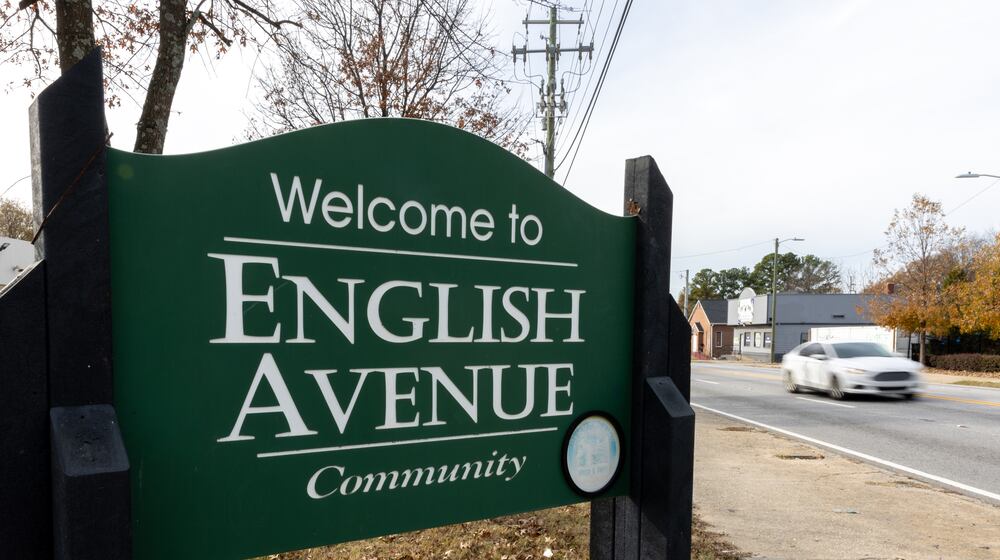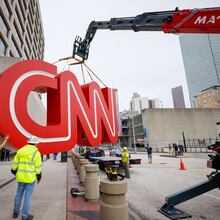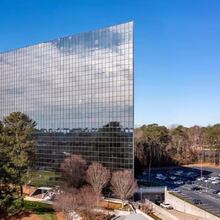For most of his tenure as Atlanta’s mayor, Kasim Reed has watched and waited as the state of Georgia and the Atlanta Falcons tried to work out a deal to build a new stadium downtown.
He’s stood by through two years of negotiations as the proposed stadium’s design, location and financing has changed.
But, with resistance from the public and hesitation among state lawmakers threatening to throw the negotiations into disarray, Reed has been spurred into action. He’s taken on the hard work of pushing a deal through city government and selling it to Atlanta taxpayers.
The political stakes are high for Reed, who faces re-election this year. If the deal collapses and the franchise pulls up stakes and head to the suburbs, Reed will be known as the mayor who lost two pro sports teams — the Falcons and the Thrashers. At the same time, he risks alienating voters who believe the city’s resources could be better used elsewhere.
“I have an election myself in nine months,” Reed said. “But I do believe that, when you’re in office, there are times when you have to make ten, 15- and 20-year decisions. This is one of those times.
“If you don’t want to make these kinds of decisions, you shouldn’t have a job like this,” he said.
Reed said Friday he hasn’t made a final decision on whether to ask the City Council to approve partial funding for the stadium. But he has directed Atlanta’s lawyers and finance staffers to study various scenarios, including any potential implications for the city’s finances and credit rating.
“We’re not ignoring any options,” Reed said Friday. “We’re exploring them all.”
It’s unclear how many votes Reed can count on in the City Council, which would need to approve any large financial commitment. But in the last three years, Reed and his allies on the council have generally been able to push through major legislation.
Last Monday, Reed buttonholed City Council members for private meetings in his City Hall office. He urged them to consider what he described as the reality of big-time sports: teams leave, and the country is littered with cities that have lost professional franchises.
The NBA’s Sacramento Kings recently were sold to a buyer who plans to move the team to Seattle, he noted. The NFL’s San Francisco 49ers are building a new stadium an hour away from the city, in Santa Clara, Calif.
He said several ownership groups in Los Angeles would love to grab an NFL team and have been searching for one. It was a not-too-subtle intimation that, if the Falcons don’t get their a $1 billion retractable-roof stadium, they might fly away.
On Tuesday, Reed found himself calling in to a sports-radio talk show to clarify exactly what he meant: No, the Falcons haven’t actually talked about leaving Georgia. But he doubled down on his main message — that Atlanta must not get complacent.
“What I didn’t want to leave out there was this notion of some threat, because that’s not who Arthur Blank is, and that’s not the way he has been during this conversation,” Reed told 790 The Zone. “But that doesn’t mean we need to stick our heads in the sand, just because we have an owner who is committed to our town.”
In the ongoing negotiations, the Falcons recently indicated they would be willing to kick in $800 million for construction of the stadium, up from the $700 million originally planned, according to three people familiar with the negotiations who asked not to be named because of the sensitivity of the talks. That move could help secure the public funding.
The deal also calls for the Falcons to contribute roughly $60 million to pay off much of the debt on the state-owned Georgia Dome, which would be demolished.
The city of Atlanta’s economic development agency, Invest Atlanta, could issue the remaining $200 million bonds for the stadium, backed by the city’s hotel-motel tax.
Such a move spares Georgia lawmakers a vote on the financing for the stadium. A statewide poll conducted recently by the AJC showed 72 percent of respondents either opposed or strongly opposed using hotel/motel tax collections in Atlanta and unincorporated Fulton County to help finance construction. Reed said he believed city residents are more supportive.
On Friday, Reed said Atlanta could serve as the "backstop" on the stadium bonds — similar to the city's relationship with Philips Arena — without jeopardizing other important projects. Reed has discussed a $250-$350 million bond issuance to help repair roads, sidewalks and other crumbling city infrastructure. A new stadium would not force those projects to the back burner, Reed said.
“We’re strong enough to fund certainly $250 million worth of infrastructure improvements, and probably more,” he said. “That is not going to be impacted by this transaction in any real way. We are in a strong enough position to handle this (stadium) transaction very comfortably.”
Reed said Atlanta has strengthened its cash reserves and weathered a shrinking budget without layoffs or property tax increases. The city also saw its credit outlook raised to “stable” from “negative” by bond-rating agency Moody’s Investors Service, a stamp of approval that could help the city get a better reception in the bond markets.
Still, Atlanta’s other elected officials say they need more information. City Councilman Howard Shook of Buckhead said his constituents remember being told Atlanta needed a domed stadium.
That makes a new stadium a hard sell, he said.
“It’s also a hard sell for people if you tell them the stadium is outdated, when everybody who walks in is awed by it,” Shook said.
Reed counters that line of argument by insisting that the Georgia Dome actually will need between $250 million and $350 million in upgrades, including roof repair, within five or seven years.
With the Falcons hoping to move into a new stadium in 2017, Reed said he does not want to spend more than two months haggling over details.
“All of the work that relates to this decision can be done in 60 days or less,” Reed said. “Within 60 days, everything about the decision can be known, and you can make an intelligent up-or-down decision. This is not particularly complex at all.”
Still, the two-month timetable may prove aggressive.
“There are a lot of discussions going on right now,” said City Council veteran C.T. Martin. “I think it’s a little early to be talking about deadlines right now, because things are so fluid.”
Councilwoman Yolanda Adrean, who represents parts of northwest Atlanta, said she wants detailed briefings about a variety of stadium-related topics, such as what would be done with the site of the current Georgia Dome if it were demolished.
“I have an open mind, but I also have a lot of questions,” Adrean said.
Staff writers Tim Tucker, Leon Stafford and Greg Bluestein contributed to this article.
About the Author




